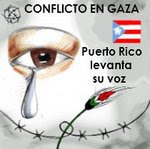
Ricardo Arduengo/Associated Press
In a blistering condemnation of the second-largest police force in the United States, the Justice Department is accusing the Puerto Rico Police Department of a “profound” and “longstanding” pattern of civil rights violations and other illegal practices that have left it “broken in a number of critical and fundamental respects.”
In a 116-page report that officials intend to make public Thursday, the civil rights division of the Justice Department accused the Puerto Rico Police Department of systematically “using force, including deadly force, when no force or lesser force was called for,” unnecessarily injuring hundreds of people and killing “numerous others.”
The report, a copy of which was obtained by The New York Times, says the 17,000-officer force routinely conducts illegal searches and seizures without warrants. It accuses the force of a pattern of attacking nonviolent protesters and journalists in a manner “designed to suppress the exercise of protected First Amendment rights.”
And it says investigators “uncovered troubling evidence” that law enforcement officers in Puerto Rico appear to routinely discriminate against people of Dominican descent and “fail to adequately police sex assault and domestic violence” cases — including spousal abuse by fellow officers.
“Unfortunately,” the report found, “far too many P.R.P.D. officers have broken their oath to uphold the rule of law, as they have been responsible for acts of crime and corruption and have routinely violated the constitutional rights of the residents of Puerto Rico.”
The report is likely to intensify a sense of distress among the nearly four million American citizens who live on Puerto Rico, where violent crime has spilled into well-to-do areas. While violent crime has plummeted in most of the mainland United States, the murder rate in Puerto Rico is soaring. In 2011, there have been 786 homicides — 117 more than at this point last year.
Rather than helping to solve the crime wave, the Puerto Rico Police Department is part of the problem, the report contends. In October, the Federal Bureau of Investigation arrested 61 officers from the department in the largest police-corruption operation in bureau history. And the arrest of Puerto Rican police officers, the report says, is hardly rare.
From January 2005 to November 2010, it said, there were more than 1,709 such arrests for offenses “ranging from simple assault and theft to domestic violence, drug trafficking and murder.” During a comparable period, the New York Police Department, with a force about twice the size, had about 607 such arrests.
“The degree of police corruption and criminal misconduct in Puerto Rico is high and contributes to the public safety and civil rights crisis,” the report said. “More P.R.P.D. officers are involved in criminal activity than in any other major law enforcement agency in the country.”
A “finding” by the civil rights division of a pattern or practice of constitutional violations by a police department is a precursor to a lawsuit, which either goes to trial or, if the local authorities agree to changes, may be settled on the day it is filed. The division has 17 such investigations open, including in New Orleans, Newark and Seattle.
Its investigation of the Puerto Rico police, which began in July 2008, resulted in one of the most extensive such critiques the department has ever produced. It condemns nearly every aspect of the force — its hiring and training practices, the way it assigns and promotes officers, and its policies governing officer behavior and accountability for misconduct.
The report recommends 133 remedial measures that would amount to a sweeping intervention. It is likely to create a political headache for Puerto Rico’s governor, Luis G. Fortuño, a Republican who took office in 2009 and, as chief executive, oversees the department.
Mr. Fortuño has been criticized for his administration’s handling of a series of mostly nonviolent demonstrations by students and workers to protest higher university fees and government layoffs. Riot police hit protesters, bystanders and journalists with batons and used pepper spray and choke holds, in incidents that were videotaped and are discussed in the report.
Two months ago, Mr. Fortuño named a new police superintendent, Emilio Díaz Colón, a former National Guard adjutant general. During his confirmation, Mr. Díaz said he would not shy away from doing what was necessary to “convert the Puerto Rican police into an example of a disciplined, effective” force, but also said he did not plan any immediate major changes.
“We all recognize that there have been challenges at the Police Department that pre-date the governor’s administration,” Edward Zayas, a spokesman for Mr. Fortuño, said on Wednesday. “The governor has always acknowledged that the Puerto Rico Police Department needs reforms. However, he did not wait for any report from the D.O.J. in order to act.”
The Justice Department began the investigation in part due to complaints by the American Civil Liberties Union. In June, when President Obama visited the island, the A.C.L.U. sent him a letter contending that the police had “engaged in a level of brutality against U.S. citizens” with a degree of impunity that “would not be tolerated in the 50 states.”
While the report said Puerto Rican officials cooperated with the investigation, it was hindered by poor record-keeping. For example, the Puerto Rico Police Department reported 39 rapes last year — a figure the report portrays as unbelievable because nearly every other jurisdiction has far more rapes than murders.
The report focused on the “rampant” use of “unnecessary or gratuitous” force, a problem made worse by the use of tactical units — heavily armed officers who are poorly trained and steeped in “violent subcultures” — for ordinary police work. It says such units frequently “rely on intimidation, fear and extreme use of force to manage crowds and are often deployed to low-income and minority communities on routine patrols.”
The report also recounts many “illustrative incidents” and includes a nine-page appendix listing dozens more. One example it said exemplified “many of the deep-rooted deficiencies that continue to plague P.R.P.D.” was the killing of Cáceres Cruz in August 2007 by a tactical unit officer.
Mr. Cruz was directing traffic near a birthday party when three officers drove by and thought he had insulted them. They told Mr. Cruz he was under arrest and wrestled him to the ground, during which time one officer shot himself in the leg.The officer then repeatedly shot Mr. Cruz, who was lying on the ground, in his head and body before they drove off. An internal investigation cleared them of misconduct. But after a video of the incident surfaced in the news media, one officer was convicted of murder. It emerged that seven complaints had been filed against him, but had been largely ignored.
“The tragic events surrounding the Cáceres Cruz shooting served as a stark reminder of P.R.P.D.’s institutional dysfunction,” the report said.

NYT
By CHARLIE SAVAGE and LIZETTE ALVAREZ
Charlie Savage reported from Washington, and Lizette Alvarez from Miami.



















